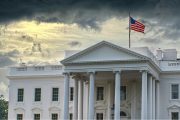
The new old president of the United States has ordered his freshly confirmed secretary of state, Marco Rubio, to put America first in all foreign policy decisions. Things are already off to a promising start. Foreign aid is being paused, DEI is being escorted out of government departments, and the nation’s borders are being secured.
On Day 1, Trump signed an executive order (EO) titled “America First Policy Directive to the Secretary of State.” According to that directive, from now on
the foreign policy of the United States shall champion core American interests and always put America and American citizens first.
While lacking details, the EO emphasizes that the secretary of state is ordered to bring “the Department of State’s policies, programs, personnel, and operations in line with an America First foreign policy, which puts America and its interests first.”
The Senate unanimously confirmed Rubio as secretary of state the same day his boss was inaugurated, Jan. 20. Trump’s choice of the former Florida senator and presidential candidate for the most important diplomatic position was a relief to the Establishment-oriented block of the Republican Party. It was a disappointment to the MAGA portion.
Will Rubio Abandon His Neocon Ways?
As explained in the latest issue of TNA, few have embodied neoconservatism better than Rubio, specifically regarding to foreign entanglements. Rubio’s voting record indicates he doesn’t usually have a problem with U.S. involvement around the world. In December 2023, he voted against bringing U.S. troops back home and out of Syria. Two months before that, he voted against pulling troops out of Niger. Back in 2016, in response to Trump’s position that the U.S. gives more than it gets from its interactions with the international community, he said, “The world without American engagement is a world none of us wants to live with.”
During Trump’s first term, Rubio also co-sponsored legislation that would make it more difficult for the president to withdraw from NATO by requiring two-thirds of the Senate to ratify a withdrawal. Let us hope Trump makes the wise decision to pull the U.S. out of NATO. Let us also hope that Rubio goes along — or gets replaced if he thinks otherwise.
Rubio has served as a U.S. senator for more than a decade. His votes aligned with the Constitution a disappointing 66 percent of that time, according to TNA’s Freedom Index. The Cuban-American legislator has rarely been in danger of being confused for a proponent of limited government.
A Glimmer of Hope
However, there is hope, or perhaps a glimmer of it. In April 2024, Rubio voted against the $95 billion foreign aid package for Ukraine, Israel, and Taiwan. He’s also made comments indicating agreement with Trump that the war in Eastern Europe needs to end. Moreover, as he starts a new job, he’s beginning to sound like a new man. On his first day as secretary of state, Rubio addressed his new employees at the State Department. His statements included a pledge that he will indeed put America first:
In our republic, the voters decide the course of our nation, both domestically and abroad. And they have elected Donald J. Trump as our president when it comes to foreign policy on a very clear mission. And that mission is to ensure that our foreign policy is centered on one thing, and that is the advancement of our national interest, which they have clearly defined through this campaign as anything that makes us stronger, or safer, or more prosperous. And that will be our mission. That will be our job across the world, … to ensure that we have a foreign policy that advances the national interest of the United States.
Rubio elaborated in a Jan. 22 press release on what the benchmark is for putting America first:
Every dollar we spend, every program we fund, and every policy we pursue must be justified with the answer to three simple questions: Does it make America safer? Does it make America stronger? Does it make America more prosperous?
The Work Has Begun
As far as details, Rubio said the State Department will do its part to ensure borders are secured, DEI requirements in government abolished and merit-based standards reinstated, divisive cultural causes thrown to the wayside, censorship crushed, and climate policies abandoned.
On Tuesday, he met with his counterparts from India, Japan, and Australia to talk about issues in the Indo-Pacific region, an area he believes China is working hard to dominate. He discussed enhancing America’s partnership with Australia on critical minerals, how to counter the China threat with Japan, and how to deepen the U.S.-India relationship on emerging technology and defense.
Moreover, the State Department and the United States Agency for International Development, which works under Rubio, have begun putting a halt to foreign aid money. That is per the executive order titled “Reevaluating and Realigning United States Foreign Aid” Trump signed Monday.
And, according to a Breitbart exclusive, Rubio will be issuing an order to all State Department employees demanding they begin reporting to work in person at the department offices.
A History of America Last
Since the end of World War II, U.S. foreign policy has been implemented in ways consistent with empire building. The U.S. has about 800 official bases in 80 countries, with up to 200,000 U.S. personnel stationed around the world. America has involved itself in a number of conflicts and wars since WWII, most being initiated without congressional approval. Moreover, U.S. intelligence agencies have carried out several regime-change operations around the world, especially since the creation of the CIA.
An organization called the Council on Foreign Relations (CFR) hijacked America’s foreign policy strategy around the middle of the 20th century. The CFR is globalist-oriented think tank based in New York City. President Woodrow Wilson created it in 1916 to “draw up a charter for world government,” according to former FBI agent Dan Smoot, whose book The Invisible Government exposed the true nature and intentions of the CFR. But it wasn’t until the Rockefeller and Carnegie foundations began pouring money into the CFR that it became influential. And by 1945, Smoot reported, “the Council on Foreign Relations, and various foundations and other organizations interlocked with it, had virtually taken over the U.S. State Department.” Since Henry Stimson under President Herbert Hoover, there have been only two non-CFR secretaries of state. Those two, Rex Tillerson and Mike Pompeo, both served in the first Trump administration.
Rubio is not a CFR member, but neither were Tillerson and Pompeo.





